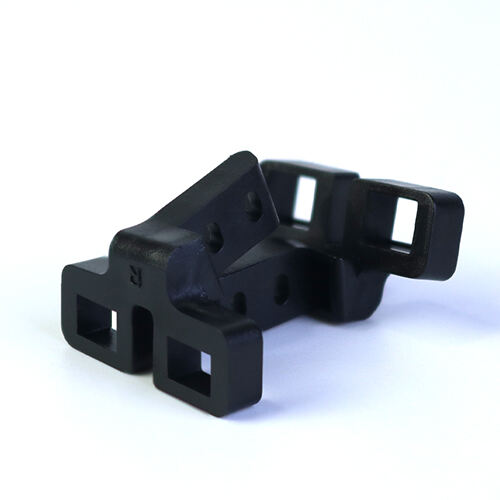Precision Machined Parts: a key force driving the high-quality development of modern manufacturing industry
In today's highly automated industrial environment, precision machining of parts has become an indispensable core element of modern manufacturing With the continuous advancement of technology and the increasing market demand, higher requirements have been put forward for the accuracy, surface quality, and production efficiency of components. Precision machining technology as a key means to achieve this goal, is developing at an unprecedented speed and playing an important role in multiple industries.

Definition and Characteristics of Precision Machining Technology
Precision machining technology refers to the use of a series of high-precision machining methods, such as turning, milling, grinding, drilling, electrical discharge machining, etc., to process raw materials into parts that meet design requirements. Its core lies in achieving machining accuracy at the micrometer or even sub micrometer level to meet the manufacturing needs of complex structures and high-precision mechanical components. This technology can not only improve the performance and reliability of products, but also significantly enhance production efficiency and resource utilization
Application fields of precision machining technology
Precision machining technology is widely used in various fields such as aerospace, automotive, medical equipment, semiconductor devices, energy and power. In the aerospace field, precision machining technology is used to manufacture key components such as engine blades, gearboxes, and bearings, which require extremely high precision and reliability. In automobile manufacturing, precision machining technology is used to produce engine cylinder blocks, gearbox housings, and other components to improve the performance and fuel efficiency of automobiles. In the field of medical devices, precision machining technology is used to manufacture surgical instruments, implants, etc. to ensure their safety and functionality
The development trend of precision machining technology
With the advancement of technology, precision machining technology is developing towards higher precision, higher efficiency, and greater intelligence. Firstly, the application of ultra precision machining technology is becoming increasingly widespread, with machining accuracy reaching the nanometer level, suitable for high-precision optical components, microelectronic devices, etc. Secondly, the combination of CNC machine tools and automation technology makes the machining process more efficient and flexible, enabling high-precision machining of complex shapes. In addition, the introduction of intelligent technologies such as online detection and computer compensation control has further improved the accuracy and stability of machining
Challenges and Countermeasures of Precision Machining Technology
Despite significant achievements in various fields, precision machining technology still faces some challenges. Firstly, the complexity and diversity of processing materials increase the difficulty of machining, especially when dealing with high hardness and high brittleness materials, which can lead to problems such as tool wear and poor surface quality. Secondly, the high cost and maintenance requirements of precision machining equipment limit its popularity in small and medium-sized enterprises. To address these issues, researchers are exploring new processing methods and materials, such as nanoimprint technology, laser processing, etc., to improve processing efficiency and reduce costs


